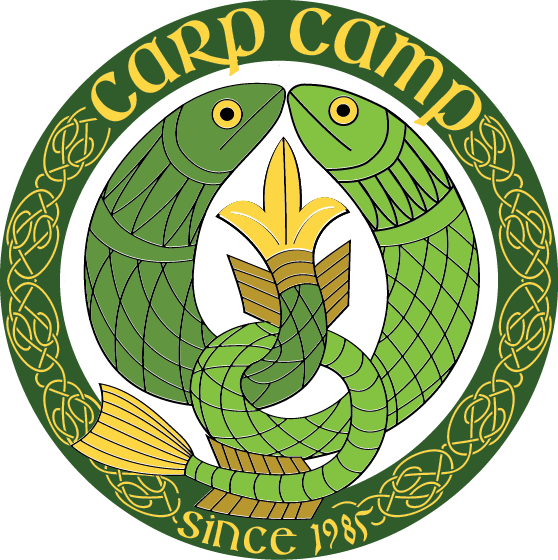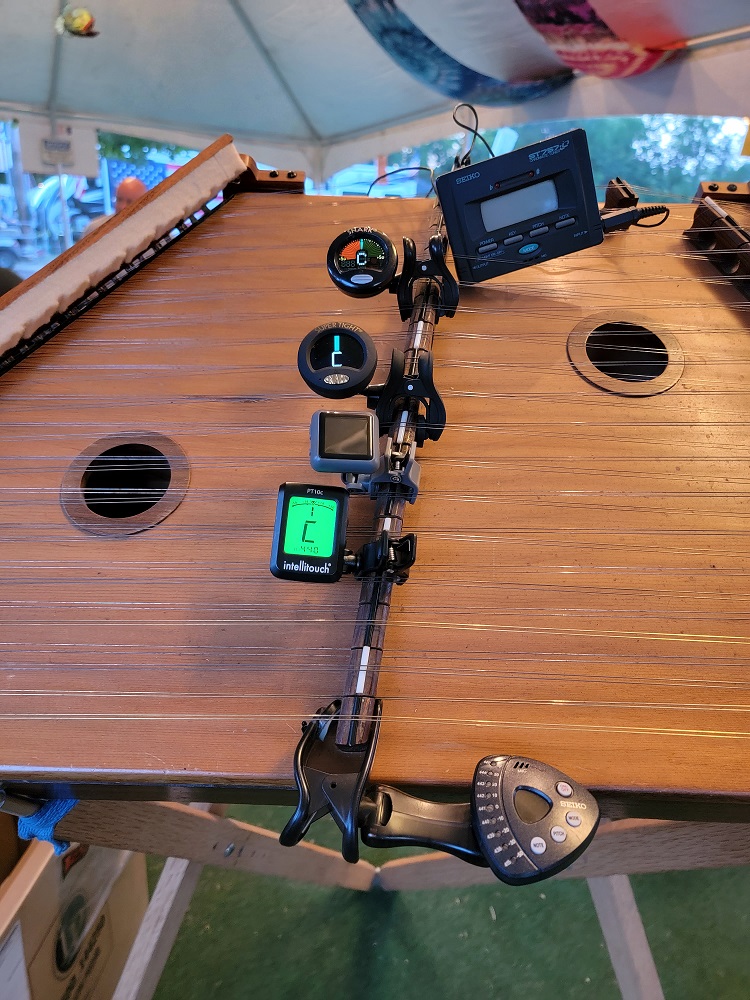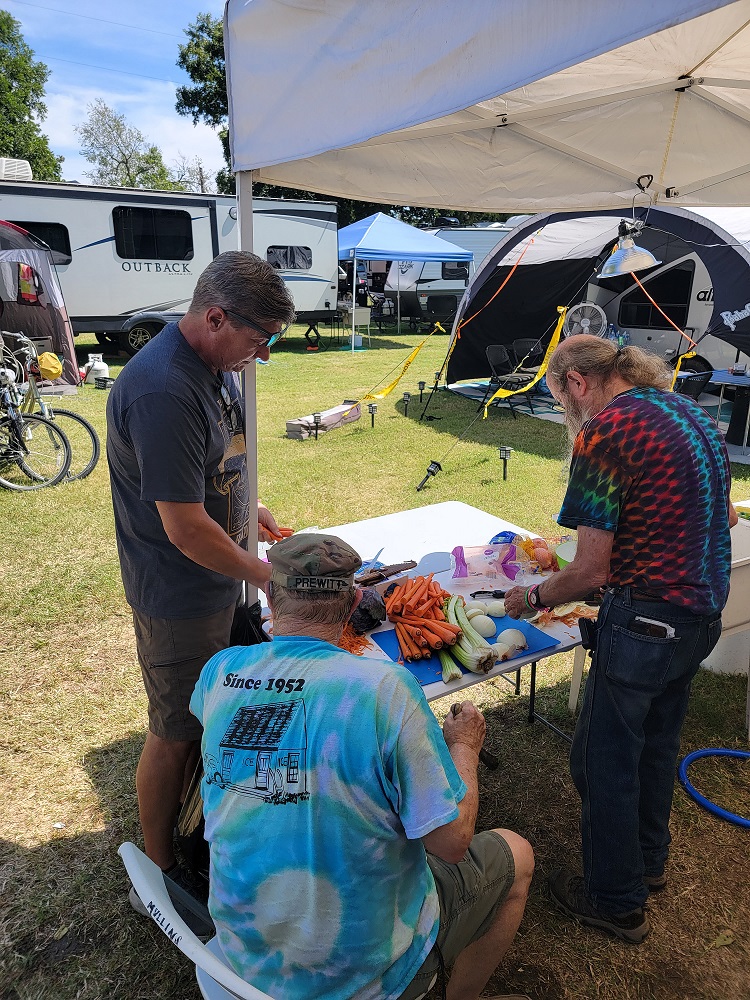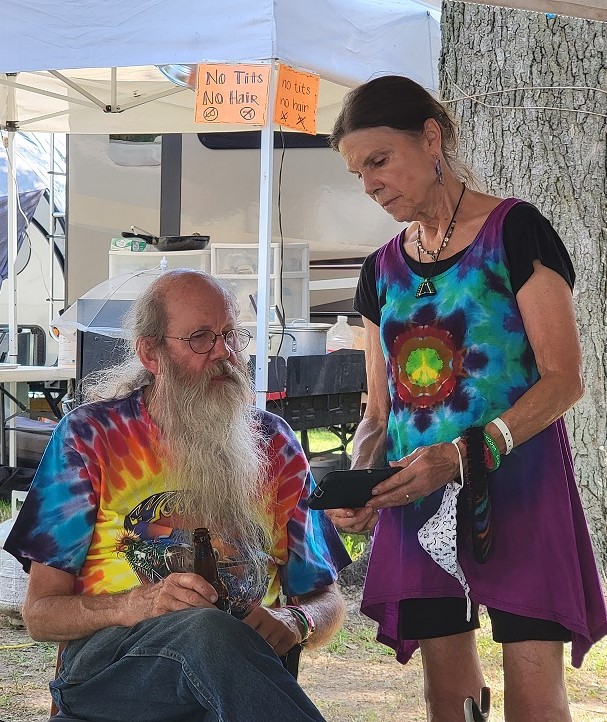A Day in the Life of the Carp
Welcome to Carp Camp. At 7:00 am, or noon, breakfast seems to have a Colorado flavor, whether it is in a pan of bacon frying, cheese and chocolate omelets, or sliced frozen blood sausage. Later in the day, the camp is relatively quiet, with some tunes on the mandolin or dulcimer, practicing new tunes, or recalling one from previous years. "Do you remember this one?" A turkey is being smoked, and maybe the kitchen too... an informal workshop might break out, "Tinkle music 101", "Three note tunes" or "Ballads where at least one person dies" or "Introduction to ThermoCarpoDynamic Theory: Spank it!"
Sit back, break out an ice cold IBC, a hot plate of carp lips, and watch late arriving Humungobagos circle the grove looking for an area to park in, eyeballing the spot you are trying to save for the late arrivals... you might see a couple of postal workers setting up a barn sized tarp guilt in the gusting winds, or hear the lilting sound of a distant honey wagon.
Small groups of musicians are playing tunes, or tuning, or laying out a straw path to the golden throne of bladder relief, while others nap... then you can smell the smoked turkey, and the chili corn bread from a Dutch oven, and the music stops long enough for a wonderful meal... but the long beard is still tuning his dulcimer.
When the twilight comes and the sun goes down, the dulcimers are close to standard pitch, or most of the strings anyway, and the tunes begin... American, Irish, Scottish, Bulgarian... just a few instruments at first, but the session grows quickly, drawn to the sound of the dulcimers and the site of the flying carp. The sets of tunes are exploratory at first..."who knows this one?", "Lets try it with this new one from the homework", and as more musicians arrive, standard carp tunes creep in...
As more people arrive, they bring dulcimers, guitars, mandolins, whistles and fiddles, and outcast instruments as well... banjos, accordions, autoharps, a gruntaphone, a didgeridoo, as well as the dreaded bowed psaltery (screeching arrowhead). Others bring their chairs to sit and watch, or make s'mores, and find themselves singing the beer song, or "Seven Old Ladies Stuck in the Lavatory" or dancing to a jig or waltz. Between sets cappuccinos and IBC's are passed to players trapped by crowds, and those who are trapped look longingly at the golden throne. But there are tunes to play.
The sets of tunes grow louder and longer, with smooth, or bizarre, or dramatic transitions. With a herd of hammer dulcimers, guitars, and drums, and all the rest, the wall of sound grows larger. The orchestra 'sections' doing solos start as "Fiddles!", and "Guitars!" but are followed by groups that have "White Shoes!" or "Lacy Underwear!" or are "National Hammer Dulcimer Champions!" or play "Nugget Mandolins!" or who are "Fiddlers Under the Age of 13!". You can almost guarantee that a set will end abruptly if someone hollers "Clean Underwear!!".
At about 4:00 am, an exhausted group seems ready to play the last waltz, and camel croon for biscuits and gravy, but a headless Banjo Buda appears, and Harmonium erupts. Again. The crowd goes wild, again. "D" tunes are woven in and out, but the Harmonium will not die, not until the hammers break and the fingers bleed... "Let them hear it in the Pecan Grove! Spank It!!!!"
-Dave Firestine, a long time ago!
Carpe Diem...









